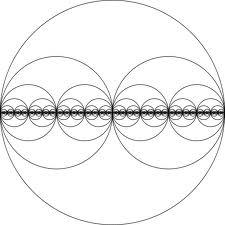
Infinite Infinity?
While reading a New Scientist article entitled “Ultimate Logic: To infinity and beyond” I enjoyed reading about the distinction between “countable infinity” (e.g. 1,2,3,4,…) and “continuum infinity” (e.g. 0.1, 0.2,… 0.01, 0.02, …, 0.001, 0.002, …, …). It’s something I had realised myself (as I’m sure many others have) – different ‘levels’ of infinity. Of course I didn’t use those fancy terms and I’m 140 years after Georg Cantor first proposed it, so no prizes for being first. But…
But I thought further* and realised that the counting infinity and continuum infinity become one and the same when the counting step is, you guessed it, infinitesimally small i.e. 0.000…1
* perhaps further than some mathematicians; if not then I expect one will soon point out the flaw in my logic 🙂
Similarly in physics I find the concept of an atom i.e. an indivisible piece of matter, to be illogical in the physical world. Given the equivalence of matter and energy (E = mc2), it seems to me that any such fundamental particle (i.e. a truly atomic particle) would have an energy equivalence which is infinitesimally small. So it seems to me that any search for “fundamental particle(s)” is flawed, however worthwhile the search is itself. I say that since an infinitesimally small amount of energy may not physically exist, and if it does it’s undetectable with our instrumentation.
Finally, it seems to me that just because something is proven in mathematics, doesn’t imply it must exist in the physical world. Or is there a proof to show this false?
